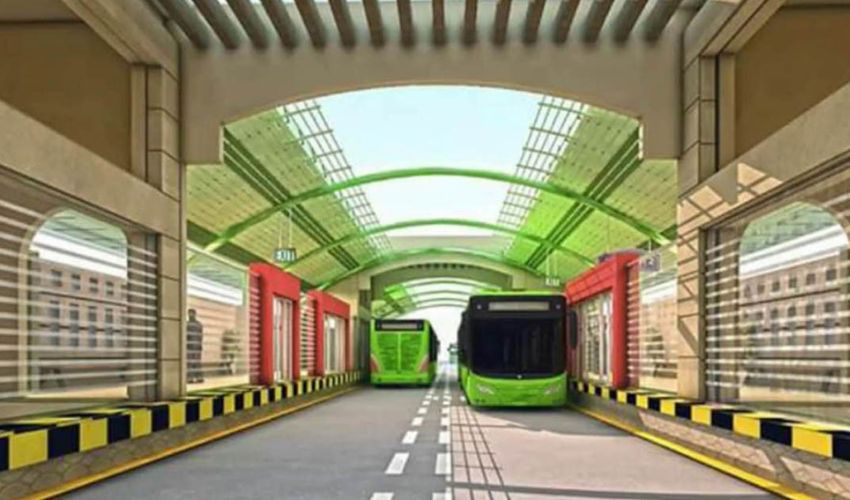Karachi Minister Sharjeel Memon chaired the meeting regarding the Yellow and Red Line and reviewed the progress of the ongoing work setting up of a biogas plant for the Red line on 32 acres of land in the Cattle Colony.
Sharjeel gave instructions to officials to speed up work on Red Line and maintained completion of BRT projects early was one of the top priorities of the Sindh government. He warned of any compromise in the quality of work in both mega transport projects.
The BRT would have 28 stations, including 6 underpass stations, nine underpasses, 2 U-turns and 2 bridges and BRT Yellow Line would have 268 diesel Hybrid buses with regular ridership of 300,000 per day. While BRT Yellow Line would have 80-100km off-corridor road facilities.
Karachi, the largest city in Pakistan, has a diverse and complex transport system catering to its population.
Karachi has an extensive network of buses and minibuses that serve as the backbone of public transportation. Various privately owned companies operate these buses, covering almost all parts of the city. Auto-rickshaws and taxis are widely used for short-distance travel. Ride-hailing services also operate in Karachi, providing more convenient options.
Due to the inadequacy of public transport, many residents rely on private vehicles, leading to significant traffic congestion. Motorbikes are a popular mode of transport due to their affordability and ability to navigate through heavy traffic.
Once a vital part of the city's transport, the Karachi Circular Railway (KCR) has been undergoing revival efforts to reduce road congestion. The project aims to provide a reliable commuter rail service.
Intercity rail services connect Karachi to other major cities in Pakistan, with the main railway station being Karachi Cantonment
The Green Line Bus Rapid Transit (BRT) is a significant public transport project aimed at providing a rapid and reliable bus service across a major corridor of the city. It is part of the larger Karachi Metrobus network planned for the city.
Additional BRT lines are planned to further enhance public transportation coverage in Karachi.
These are major ports handling a significant portion of Pakistan's maritime trade. While primarily used for cargo, there are proposals to develop ferry services for passenger transport.
The primary airport serving Karachi, Jinnah International, is the busiest airport in Pakistan, offering both domestic and international flights.
With the increasing number of vehicles, traffic congestion is a major issue, especially during peak hours. Emissions from vehicles contribute to air pollution, a significant concern in Karachi. While road safety is a significant concern due to the high rate of accidents.



























